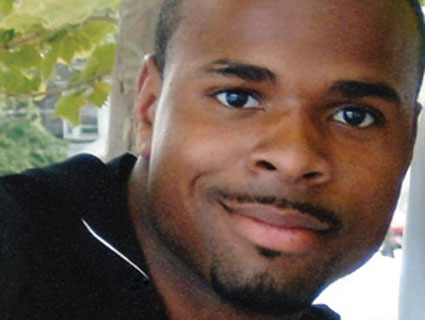
<a href="http://www.shutterstock.com/pic.mhtml?id=68939158">idiz</a>/Shutterstock
Yonas Fikre, an American Muslim who claims that he was tortured in the United Arab Emirates at the behest of the US government, sued the Federal Bureau of Investigation and the State Department on Thursday. Fikre, whose story was first reported by Mother Jones in April 2012, claims he was abused by local authorities in the UAE after refusing to become an informant for the FBI.
As Mother Jones reported in 2011, the US government has acknowledged that the information it shares with foreign governments about American terrorism suspects sometimes results in the arrest, detention, and interrogation of those suspects. The FBI has also acknowledged that FBI agents occasionally “interview or witness an interview” of American terrorism suspects detained abroad. Fikre’s lawsuit contends that he was a victim of this practice, commonly known as proxy detention, and seeks $30 million in damages as well as injunctions to prevent the government from treating anyone else the way he claims he was treated.
Fikre’s claims are not unique—indeed, they are remarkably similar to the accounts of other American Muslims who say they were detained and interrogated by foreign security forces at the behest of the US government. Fikre’s story echoes those of Naji Hamdan, Amir Meshal, Sharif Mobley, Gulet Mohamed, and Yusuf and Yahya Wehelie. All are American Muslim men who claim that, while traveling abroad, they were detained, interrogated, and in some cases abused by local security forces; the US government, they say, used this process to circumvent their legal rights as American citizens.
Several FBI officials have confirmed to me (on the condition that they not be named) that the bureau has for years used some of its elite international agents—known as legal attachés, or “legats”—to coordinate the detention of American and foreign terrorism suspects at the hands of American allies. And although the FBI maintains that foreign governments that detain American terrorism suspects are told not to abuse them, many of the countries in question have long histories of abusive detentions.
Fikre’s lawsuit also seeks injunctions that would end the practice of proxy detention for good. There are complications, however. Fikre is currently in Sweden, seeking political asylum. He is on the no-fly list, and would likely have problems returning to the United States even if he wished to do so. He also has legal problems: Two weeks after he went public with his story, federal prosecutors charged him and two others with violating federal laws regarding the transfer of large amounts of money over international borders. Fikre denies the charges; in his lawsuit, he alleges they were filed in retaliation for his decision to go public.
Even if the suit moves forward, the government holds a trump card: the state secrets privilege, a rule that allows the feds to quash a case when they claim that it might infringe on national security. The privilege has been invoked by both the George W. Bush and Barack Obama administrations in cases that involve the government spying on Americans, or in which America’s relationships with foreign governments that torture people might have been revealed.
You can read the lawsuit here:












